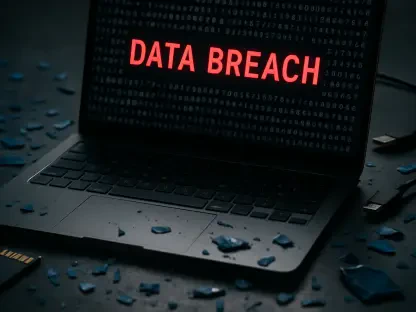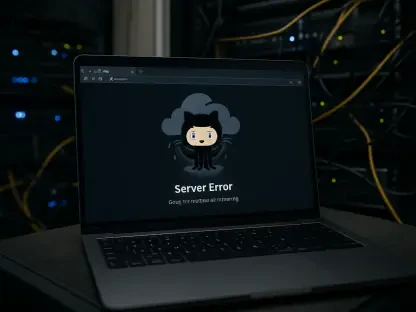Imagine a patient’s confidential medical records falling into the wrong hands because of an unprotected email system. This alarming scenario is becoming increasingly common as healthcare organizations face mounting threats from email-based attacks. A recent report highlights the urgent need for stronger email security measures within the sector, revealing the staggering extent of vulnerabilities and breaches.
The Growing Threat Landscape
Email: A Primary Target for Cybercriminals
Email has emerged as the primary attack vector in healthcare, with Microsoft 365 environments implicated in 43% of breaches. This statistic underscores the crucial need for proper security settings and robust defensive measures. Other email service providers like Proofpoint, Barracuda Networks, Mimecast, and Google Workspace have also experienced breaches, albeit to a lesser extent. The consistent failure to implement essential email security protocols is a significant contributing factor to these incidents.
Security Protocols Falling Short
Numerous healthcare organizations have failed to adopt key email security measures. A substantial number lack Mail Transfer Agent Strict Transport Security (MTA-STS) protections, rendering them vulnerable to email interceptions. Shockingly, over a third of Microsoft 365 users maintain Domain-based Message Authentication, Reporting, and Conformance (DMARC) in monitor-only mode, allowing many phishing attempts to bypass detection. Furthermore, 30% have no DMARC records, 12% lack Sender Policy Framework (SPF) records, and 40% have weak configurations, all of which facilitate email spoofing.
Dire Consequences of Insufficient Security
Financial and Compliance Penalties
The financial impact of email breaches in healthcare is enormous, with the average cost per breach amounting to $9.8 million, excluding HIPAA fines. High-profile breaches serve as stark reminders of the severe consequences of inadequate email security practices. For instance, Solara Medical Supplies faced a $9.76 million settlement following a phishing attack, and LA Cares was issued a $1.3 million fine due to systemic security failures.
Surge in Ransomware Attacks
A dramatic increase in ransomware attacks has shaken the healthcare sector since 2018, predominantly delivered via email. These attacks often exploit improperly configured security protocols, leading to significant data breaches and operational disruptions. The urgency to enhance email security is underscored by the sector’s 264% rise in ransomware incidents over recent years, putting patient data and healthcare operations at immense risk.
Moving Forward with Stronger Security
Necessity for Mandatory Standards
Healthcare organizations must shift from optional to mandatory enforcement of DMARC and SPF to bolster email security. Ensuring proactive compliance with HIPAA rules is crucial to mitigate risks associated with email-based attacks. These standards are not merely suggestions; they are vital components of a robust email security framework that can protect against increasingly sophisticated threats.
Adopting Advanced Security Measures
Integrating additional layers of defense, including advanced AI techniques, can significantly enhance email security. Regular evaluation and upgrading of security implementations are essential to stay compliant and protect patient data. Healthcare entities need to continuously adapt and improve their defenses to counter evolving cyber threats effectively.
Reflecting on Future Action
The email security landscape in healthcare has been fraught with risks, demanding proactive and comprehensive measures to safeguard patient data. The recent findings call for decisive action from healthcare organizations to enforce robust and mandatory security protocols. By transitioning to mandatory standards and embracing advanced security technologies, the sector can better protect against looming threats. Ensuring constant vigilance and improvement in security measures will pave the way for a safer, more secure healthcare environment.









